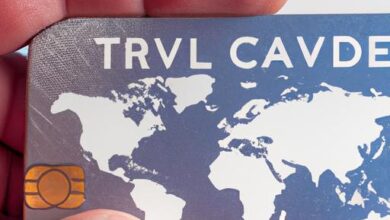Is Traveling Back in Time Possible?
Have you ever wondered if it’s possible to travel back in time? The concept of time travel has captivated our imaginations for centuries, fueling countless theories, stories, and debates. The mere thought of being able to revisit historical events or correct past mistakes is undeniably intriguing. In this article, we’ll delve into the theoretical possibilities, the influence of science fiction, the challenges and paradoxes, ongoing scientific research, and the philosophical implications surrounding the question: is traveling back in time possible?
From wormholes to black holes, scientists and physicists have proposed various theories that could potentially allow us to travel through time. The concept of wormholes, hypothetical tunnels connecting different points in space-time, has been explored in scientific research. According to the theory of relativity, time dilation could occur near massive objects such as black holes, where time runs slower compared to areas with less gravity. These theories suggest that manipulating space-time could potentially pave the way for time travel.
Science fiction has played a significant role in shaping our fascination with time travel. From H.G. Wells’ iconic novel “The Time Machine” to the popular “Back to the Future” film series, these stories have sparked our imagination and sparked curiosity about the possibility of altering the past. Science fiction has the power to influence public perception and interest, pushing scientists to explore these concepts further.
However, the notion of time travel also presents its fair share of challenges and paradoxes. The butterfly effect, for instance, suggests that even the smallest alteration in the past could have significant consequences in the present and future. The grandfather paradox, another classic example, questions the possibility of going back in time and preventing your own birth. These paradoxes raise doubts about the plausibility of time travel and the potential consequences it could unleash.
In recent years, scientific research and experiments have shed light on the feasibility of time travel. Studies have explored quantum mechanics, the study of particles at the smallest scale, to uncover potential avenues for manipulating time. Breakthroughs in quantum teleportation and entanglement have shown promise in the realm of time travel research. While we are far from achieving time travel, these advancements offer hope for future discoveries.
The concept of time travel also poses intriguing philosophical implications. Altering the past could have profound effects on our present and future, raising ethical questions about interfering with the course of history. Additionally, time travel could challenge our understanding of causality and the nature of free will. These philosophical considerations further deepen the complexity of the time travel debate.
In conclusion, the possibility of traveling back in time continues to captivate our minds. While theoretical possibilities, scientific research, and science fiction have fueled our fascination, challenges and paradoxes remind us of the complexity of such endeavors. As we navigate the boundaries of time, we are left contemplating the philosophical implications and the profound impact time travel could have on our perception of the universe. So, is traveling back in time possible? Let’s explore further.
Theoretical Possibilities of Time Travel
Theories Proposed by Scientists and Physicists
Scientists and physicists have put forth various theories that explore the possibility of time travel. One of the most intriguing concepts is the existence of wormholes. These hypothetical tunnels in spacetime could potentially act as shortcuts, connecting different points in the universe. While wormholes remain purely theoretical at this point, they offer a glimpse into the realm of possibilities for traversing time.
Exploring Concepts: Wormholes, Black Holes, and the Theory of Relativity
Wormholes, if they exist, could offer a potential avenue for time travel. By bending spacetime, these tunnels could create shortcuts through the fabric of the universe, allowing for instantaneous travel between two points. However, the scientific community is still grappling with the immense challenges associated with creating and stabilizing wormholes.
The theory of relativity, proposed by Albert Einstein, also plays a crucial role in understanding the possibilities of time travel. According to this theory, time is not absolute but rather depends on the observer’s perspective and the relative motion between objects. Time dilation, a phenomenon derived from the theory of relativity, suggests that time can run at different rates depending on the gravity or velocity experienced by an object. For instance, near massive objects like black holes, time moves slower compared to areas with less gravitational pull.
Time Dilation and Its Relation to Time Travel
Time dilation, a consequence of the theory of relativity, is an essential concept when considering time travel. As an object moves closer to the speed of light or experiences intense gravitational fields, time for that object slows down relative to an observer in a different frame of reference. This phenomenon has been observed and verified through experiments involving atomic clocks.
The potential for time dilation opens up possibilities for time travel. If we can manipulate the conditions for time dilation, such as by traveling near a black hole or reaching near-light speeds, we may be able to experience time differently. However, the challenges of achieving and sustaining such conditions are immense and require advancements in technology and our understanding of the universe.
In the next section, we will explore the influence of time travel in science fiction, where these theoretical possibilities have been brought to life in captivating stories and movies.
Time Travel in Science Fiction
Science fiction has long been a driving force behind our fascination with time travel. Through popular culture, movies, and literature, time travel has been portrayed in various ways, captivating audiences and fueling our curiosity. Let’s explore how science fiction has influenced public perception, delve into iconic examples of time travel stories, and examine their impact on society.
Science Fiction’s Influence on Public Perception
Science fiction plays a crucial role in shaping public perception and interest in time travel. Through imaginative storytelling and creative narratives, science fiction authors and filmmakers have brought the concept of time travel to life. These captivating depictions have sparked our imagination and fueled our desire to explore the possibilities of traveling through time.
By presenting time travel in an accessible and entertaining manner, science fiction has made the idea more relatable and appealing to the general public. It has transformed time travel from a purely scientific concept into a source of wonder and excitement for people of all ages. As a result, the fascination with time travel has permeated our culture, leading to an increased interest in understanding the scientific principles behind it.
Iconic Examples of Time Travel Stories
Numerous iconic examples of time travel stories have left an indelible mark on popular culture. From books to movies, these stories have captured our imagination and become cultural touchstones. Let’s explore a few notable examples:
1. “The Time Machine” by H.G. Wells
H.G. Wells’ classic novel “The Time Machine,” published in 1895, is often regarded as the pioneer of time travel stories. It introduced the concept of a time machine, allowing the protagonist to journey far into the future. Wells’ imaginative tale not only entertained readers but also sparked discussions about the possibilities and implications of time travel.
2. “Back to the Future” Film Series
The “Back to the Future” film series, released in the 1980s, became an instant sensation and remains a beloved franchise to this day. The story follows the adventures of Marty McFly as he travels back and forth through time using a DeLorean car equipped with a flux capacitor. This iconic series not only captivated audiences but also popularized the idea of altering the past to shape the future.
3. “Doctor Who” TV Series
“Doctor Who,” a British science fiction television series that has been on the air since 1963, revolves around the adventures of the Doctor, a time-traveling alien known as a Time Lord. Spanning decades, this long-running series has become a cultural phenomenon, captivating audiences with its exploration of time and space.
Impact on Society
The influence of time travel stories goes beyond mere entertainment. These narratives have shaped our collective imagination and influenced various aspects of society. Time travel stories have inspired scientific research and advancements, pushing scientists to explore the boundaries of our understanding of time and space. They have also provided a platform for philosophical discussions about the nature of time, causality, and free will.
Moreover, time travel stories have fostered a sense of wonder and curiosity, encouraging people to think beyond the confines of the present and explore new possibilities. They have sparked conversations, debates, and creative endeavors, further enriching our cultural landscape.
In conclusion, time travel in science fiction has played a significant role in shaping public perception and interest. Through imaginative storytelling, it has made the concept of time travel relatable and captivating. Iconic examples of time travel stories have become cultural touchstones, leaving a lasting impact on society. As we continue to explore the realms of time travel, these narratives will undoubtedly continue to inspire and fuel our curiosity.
Paradoxes and Challenges of Time Travel
Time travel is a concept that not only fascinates us, but also presents us with a myriad of paradoxes and logical challenges. As we explore the possibility of traversing through time, we encounter mind-boggling scenarios and potential consequences that push the limits of our understanding. Let’s delve into some of the most perplexing paradoxes and challenges associated with time travel.
The Butterfly Effect
One of the most well-known paradoxes related to time travel is the butterfly effect. This concept suggests that even the tiniest change in the past can have significant and unforeseen consequences in the present and future. Imagine traveling back in time and accidentally stepping on a butterfly. This seemingly insignificant action could alter the course of events, leading to a chain reaction of changes, potentially resulting in a vastly different present. The butterfly effect reminds us of the delicate balance of cause and effect, highlighting the potential fragility of the timeline and the challenges of altering the past.
The Grandfather Paradox
Another classic paradox is the grandfather paradox, which raises questions about the possibility of going back in time and altering one’s own existence. The paradox goes as follows: if you were to travel back in time and prevent your grandfather from meeting your grandmother, thus preventing your own birth, would you still exist to go back in time in the first place? This paradox highlights the inherent contradictions and logical challenges of altering the past. It questions the consistency of cause and effect, leaving us pondering the potential consequences and the paradoxical nature of time travel.
Arguments Against the Plausibility of Time Travel
While the concept of time travel is captivating, there are several arguments against its plausibility. Some argue that time travel violates the principles of causality, suggesting that altering the past would lead to logical inconsistencies and contradictions. Others posit that the laws of physics, particularly the conservation of energy and the second law of thermodynamics, would prevent time travel from being achievable. These arguments remind us of the scientific and logical hurdles that need to be overcome to make time travel a reality.
In summary, as we explore the possibility of time travel, we confront paradoxes and challenges that stretch the limits of our comprehension. The butterfly effect reminds us of the intricate interconnectedness of events, highlighting the potential consequences of altering the past. The grandfather paradox questions the logical consistency of altering our own existence. Furthermore, arguments against the plausibility of time travel remind us of the scientific and logical hurdles that must be addressed. These paradoxes and challenges serve as a reminder of the complexity and profound implications of venturing into the realm of time travel.
Current Scientific Research and Experiments
Ongoing Scientific Research
The quest for time travel continues to be a subject of intense scientific research and experimentation. Scientists around the world are actively exploring various avenues to unravel the mysteries of time manipulation.
In recent years, the field of quantum mechanics has been at the forefront of time travel research. Quantum entanglement, a phenomenon where particles become interconnected regardless of distance, has shown potential for manipulating time. Scientists have conducted experiments that indicate the possibility of entangling particles across time, suggesting the potential for sending information into the past or future.
Another area of research revolves around the concept of closed timelike curves (CTCs). These are hypothetical paths that allow an object to travel back in time while following a closed trajectory. While the existence of CTCs is still a topic of debate, scientists are investigating the theoretical implications and potential practical applications if they were to exist.
Notable Studies and Breakthroughs
Several notable studies and breakthroughs have pushed the boundaries of time travel research. One significant development is the work on “time crystals.” These are structures that exhibit a unique phenomenon called time-translation symmetry breaking, where they oscillate between different states without expending energy. Time crystals could potentially provide insights into manipulating time and unlocking the secrets of time travel.
Additionally, the study of black holes has yielded intriguing findings. Recent research suggests that black holes may hold clues to understanding the nature of time itself. By studying the behavior of matter near black holes, scientists hope to uncover insights into time dilation and its potential implications for time travel.
Advancements Towards Achieving Time Travel
While achieving time travel remains a distant goal, there have been promising advancements in related fields. The development of advanced computer simulations and modeling techniques allows scientists to explore time travel scenarios more comprehensively. These simulations help refine theoretical models and guide experimental research, bringing us closer to understanding the intricacies of time manipulation.
Furthermore, collaborations between physicists and engineers have resulted in the construction of sophisticated particle accelerators and other experimental devices. These instruments enable scientists to recreate extreme conditions and study the fundamental aspects of space-time, potentially uncovering breakthroughs that could pave the way for time travel.
As scientific research and experiments progress, we inch closer to unraveling the mysteries of time travel. While significant challenges and limitations persist, the dedication and innovation of researchers continue to push the boundaries of our understanding. The ongoing pursuit of knowledge in this captivating field offers hope that one day, we may unlock the secrets of time travel and embark on extraordinary journeys through the fabric of time itself.
Philosophical Implications and Conclusion
The possibility of time travel not only presents scientific and logical challenges but also raises profound philosophical implications. Imagine the ability to alter the past, to change the course of history, and potentially shape the present and future. Such power brings forth ethical questions that demand careful consideration.
One of the main concerns revolves around the concept of causality. Time travel could disrupt the cause-and-effect relationships we rely on to understand the world. A small alteration in the past could have far-reaching consequences, potentially creating paradoxes and contradictions. The delicate balance of events that shaped our existence could be irreversibly disrupted.
Moreover, time travel challenges our understanding of free will. If we were to travel back in time and change our actions, would we still have the freedom to choose differently? Or would our actions be predetermined, leading to an inevitable outcome? These philosophical quandaries force us to reevaluate our perception of time, destiny, and the nature of our choices.
The ethical implications of time travel are also significant. Is it morally justifiable to intervene in historical events, even with the intention of preventing atrocities or improving the world? The potential consequences of altering the past are unpredictable, and our actions could have unintended negative effects. The intricate tapestry of history is woven by countless threads, each contributing to the present. Tugging on one thread could unravel the entire fabric.
In conclusion, the possibility of time travel poses not only scientific and logical challenges but also profound philosophical implications. While the theoretical possibilities, scientific research, and the influence of science fiction continue to fuel our fascination, the complexities and paradoxes remind us that time travel is far from a straightforward concept. As we ponder the philosophical considerations and the potential consequences of altering the past, the intriguing journey to understand the universe and its mysteries continues.
So, is traveling back in time possible? The answer remains elusive, but the exploration of this question invites us to expand our horizons, challenge our perceptions, and delve deeper into the mysteries of time.
Conclusion: So above is the Is Traveling Back in Time Possible? article. Hopefully with this article you can help you in life, always follow and read our good articles on the website: Game Zone


